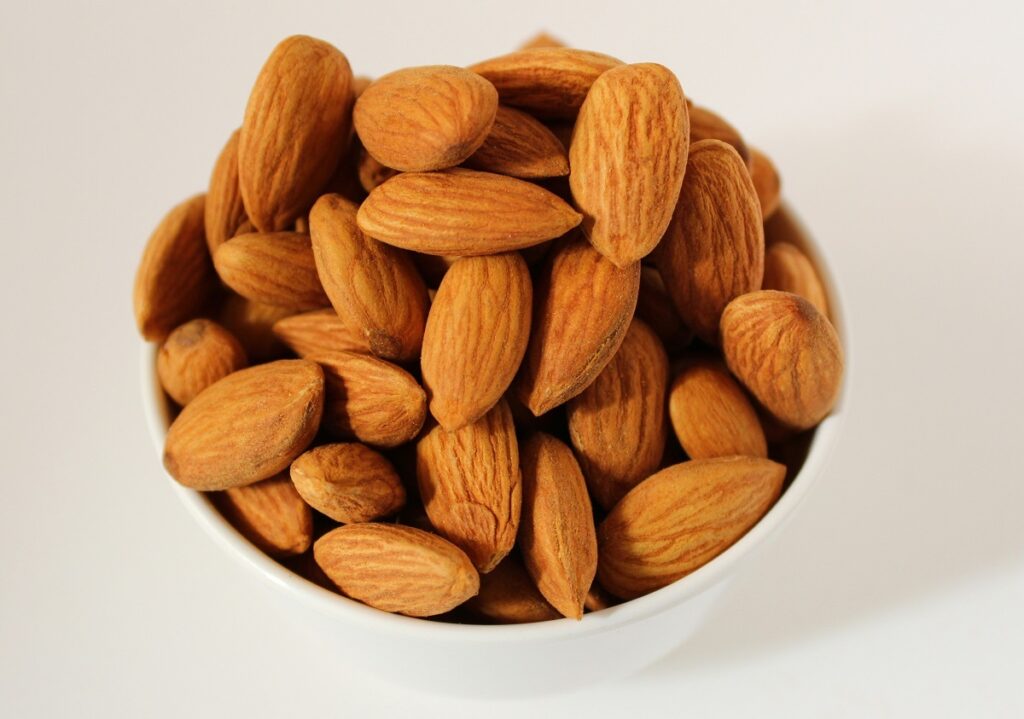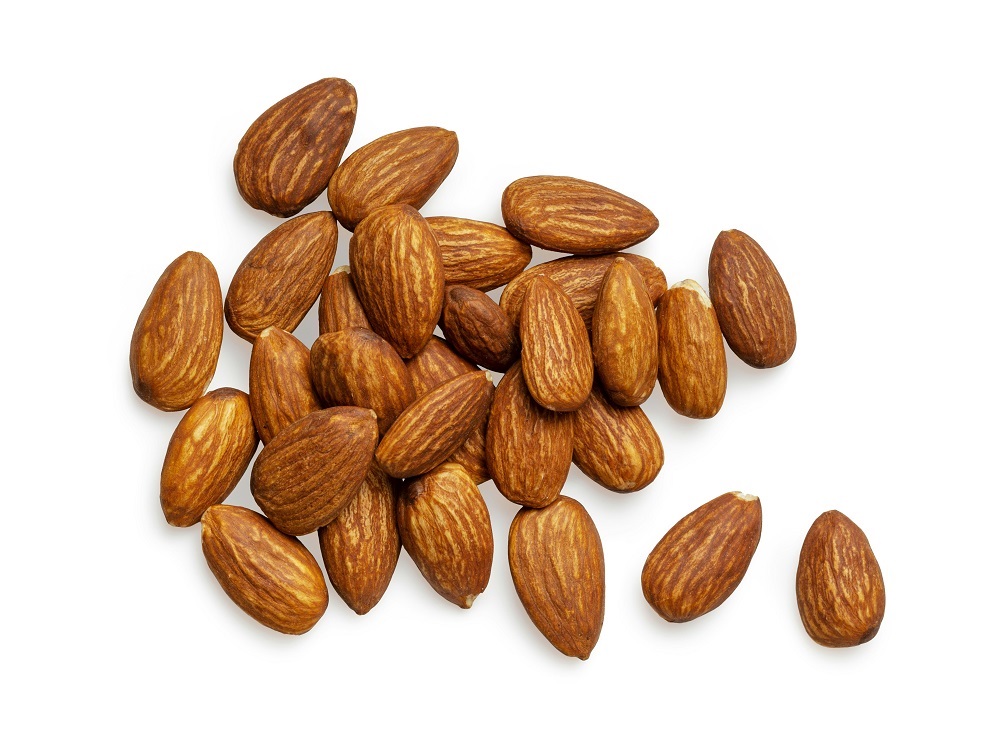As the winter season arrives, many people begin to focus on nourishing their bodies with the right foods to keep warm and healthy during the colder months. One of the most nutritious foods you can incorporate into your winter diet is almonds. These small yet powerful nuts offer a wealth of health benefits, particularly when consumed regularly. Almonds are packed with vitamins, minerals, and healthy fats that help support immune function, enhance skin health, promote energy levels, and improve overall well-being. In this article, Mohit Tandon from Texas will explore 11 compelling reasons to add almonds to your winter diet.
1. Rich Source of Nutrients for Winter Health
During winter, your body requires more nutrients to fend off the cold and maintain its energy levels. Almonds are an excellent source of essential nutrients such as vitamin E, magnesium, copper, manganese, and fiber. Vitamin E, in particular, plays an essential role in enhancing immunity, which is especially important in the colder months when the immune system may be under greater stress. Magnesium supports muscle function, helping to prevent cramps and discomfort often caused by colder weather. – Mohit Tandon Texas
2. Boosting Immune Function
Winter is notorious for the increase in cold and flu cases, and maintaining a strong immune system is crucial during this time. Almonds provide significant amounts of vitamin E, a potent antioxidant that helps protect your cells from oxidative stress and supports immune function. Additionally, almonds contain zinc, a trace mineral known to play a critical role in immune responses. Including almonds in your winter diet can fortify your body’s defenses and reduce the likelihood of falling ill.

3. Improving Skin Health
Cold, dry weather can wreak havoc on your skin, leaving it dry, cracked, and prone to irritation. Almonds, rich in healthy fats and antioxidants, can help improve your skin’s health and appearance. The vitamin E found in almonds acts as a powerful antioxidant, helping to protect skin cells from environmental stressors and keeping your skin soft and hydrated. Additionally, the fats in almonds support skin cell regeneration, ensuring that your skin remains healthy and youthful-looking despite harsh winter conditions.
4. Providing Healthy Fats for Winter Energy
During the winter months, many people experience a dip in energy levels due to reduced sunlight and colder weather. To combat fatigue, it’s important to fuel your body with healthy fats, which provide long-lasting energy. Almonds are an excellent source of monounsaturated fats, which are beneficial for overall heart health. These healthy fats provide a steady energy supply and help to keep you feeling satisfied, making almonds an ideal snack for combating winter lethargy.
5. Supporting Heart Health in Cold Weather
Cold weather can increase the risk of heart problems for some individuals, as the body works harder to maintain its internal temperature. Almonds are heart-healthy due to their high content of monounsaturated fats, which have been shown to reduce the risk of heart disease by lowering bad cholesterol levels. Additionally, the magnesium in almonds supports blood vessel function and helps maintain healthy blood pressure, further contributing to heart health during the winter months when cardiovascular stress may be higher.
6. Weight Management During Winter
Winter can often be associated with overeating, especially when the body craves comfort foods. Almonds are a great option for maintaining a healthy weight during the colder months. They are rich in fiber and protein, which help to keep you feeling full and satisfied for longer. By incorporating almonds into your diet, you can reduce cravings for unhealthy snacks and keep your metabolism stable. Whether consumed as a snack or added to dishes, almonds are a satisfying and nutritious food that can aid in weight management.
7. Promoting Digestive Health
The digestive system can sometimes struggle with changes in temperature and diet during winter, leading to bloating, constipation, or discomfort. Almonds are rich in dietary fiber, which is essential for maintaining a healthy digestive system. The fiber in almonds helps regulate bowel movements, promoting regularity and preventing constipation. Additionally, almonds contain prebiotics that support the growth of beneficial gut bacteria, further improving digestion and overall gut health.
8. Enhancing Brain Function and Cognitive Health
Shorter daylight hours during winter can affect mood and cognitive function, leading to mental fatigue or even seasonal affective disorder (SAD). Almonds contain high levels of vitamin E, which is known to support brain function and cognitive health. The antioxidants in almonds protect brain cells from oxidative damage and may even help prevent age-related cognitive decline. Additionally, the healthy fats in almonds support brain cell communication, enhancing memory and focus during the winter months when mental clarity is particularly important.
9. Regulating Blood Sugar Levels
For individuals with diabetes or those looking to prevent spikes in blood sugar, almonds are an excellent food choice. Almonds are low on the glycemic index and have a minimal impact on blood sugar levels. The fiber, healthy fats, and protein found in almonds help regulate the release of sugar into the bloodstream, preventing rapid blood sugar fluctuations. Consuming almonds as part of a balanced diet can help stabilize blood sugar levels during the winter months, reducing the risk of diabetes-related complications.– Mohit Tandon Texas

10. Supporting Bone Health in Winter
As winter approaches and people spend more time indoors, it can become more challenging to get the vitamin D necessary for healthy bones. Almonds are a good source of magnesium and calcium, both of which are vital for maintaining strong bones and preventing bone-related issues. Magnesium is essential for the proper absorption of calcium, while calcium helps maintain bone density and strength. Including almonds in your diet during the winter can support optimal bone health, especially when combined with other sources of vitamin D.
11. Satisfying Cravings with a Nutrient-Dense Snack
During winter, cravings for comfort foods like pastries, fried snacks, or sugary treats often increase. Almonds offer a healthier alternative to these calorie-dense foods while still providing a satisfying crunch and flavor. Whether enjoyed on their own, mixed with dried fruits, or added to your favorite winter recipes, almonds are a nutrient-dense snack that can curb your cravings while delivering essential vitamins, minerals, and healthy fats. They offer a great way to indulge without compromising your health during the winter months.
Conclusion
Almonds are a versatile, nutrient-packed food that can bring numerous benefits when incorporated into your winter diet. From boosting immune function and improving skin health to providing energy and promoting heart and digestive health, almonds are an all-around powerhouse. By adding almonds to your daily meals or snacks, you can ensure that you are nourishing your body with the vitamins, minerals, and healthy fats it needs to thrive during the winter months. Whether you’re looking to enhance your skin’s radiance, regulate blood sugar levels, or simply enjoy a satisfying snack, almonds provide a perfect solution for maintaining health and vitality all season long.
